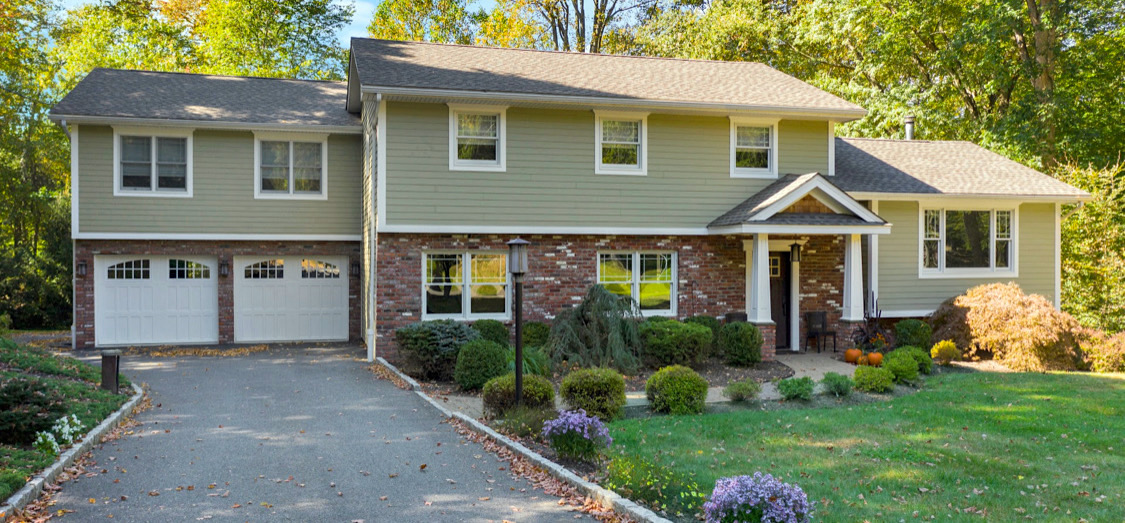Table Of Content
- Motherless Children Make Their Own Family In Ann Patchett's 'The Dutch House'
- The Dutch House by Ann Patchett review – an irresistible modern fairytale
- Book Reviews
- Ann Patchett Calls 'Commonwealth' Her 'Autobiographical First Novel'
- What to Read
- Click to PurchasePARNASSUS BOOKS (signed) INDIEBOUND BARNES & NOBLE HARPER COLLINS Listen on libro.fm
And if Maeve is a substitute mother then she’s in some ways as compromised a figure as Elna and Andrea, demanding her own relentless form of sacrifice in the guise of Danny’s medical studies. Having carried out his sister’s revenge against their stepmother by qualifying as a doctor, he refuses to practise medicine. Elna is referred to in worshipful tones by everyone except her son, who remembers none of her merits but suffers the sting of abandonment. While training at medical school Danny meets Celeste, a bright young woman who could have been a doctor herself but because of the time period decides to be a doctor's wife instead.
Motherless Children Make Their Own Family In Ann Patchett's 'The Dutch House'
James said that the house of fiction has “not one window, but a million”, depending on who is looking at the scene, and Patchett’s elegantly constructed narrative often reads like a dramatisation of this idea. For years after they are banished from the Dutch House, Maeve and Danny make a ritual of parking outside their former home to watch the comings and goings of Andrea and their stepsisters through its vast windows. “Do you think it’s possible to ever see the past as it actually was? ” asks Danny, now in college, where Maeve forces him to endure years of expensive medical training simply to drain the educational fund that would otherwise devolve to Andrea’s daughters. Andrea, a pretty young widow 18 years Cyril's junior, falls in love with his house and then finagles her way into it with her two small daughters.
The Dutch House by Ann Patchett review – an irresistible modern fairytale
The two wealthy siblings are thrown back into the poverty their parents had escaped from and find that all they have to count on is one another. It is this unshakeable bond between them that both saves their lives and thwarts their futures. At the end of the Second World War, Cyril Conroy combines luck and a single canny investment to begin an enormous real estate empire, propelling his family from poverty to enormous wealth. His first order of business is to buy the Dutch House, a lavish estate in the suburbs outside of Philadelphia.
Book Reviews

Meant as a surprise for his wife, the house sets in motion the undoing of everyone he loves. Blurb is complete without the descriptors “searing,” “probing,” “challenging” or the like. The use of destabilizing narrative techniques (which often force critics to either include spoilers or to be oblique in order to avoid them) is so prevalent as to seem almost de rigueur. Rare among Patchett's fiction, The Dutch House is written in the first person, from Danny's adult point of view. Because Danny is by design a clueless, tight-lipped character, it isn't clear that this was the right choice; an omniscient third person narration might have been a better way to get deeper inside him. Many of the details about his eccentric upbringing come courtesy of his older sister, a much more interesting character.
Danny is at home—if home is to be utterly comfortable and safe—only with Maeve, and mostly in her car. He encounters his mother, decades after she leaves, in a hospital waiting room. These transitional spaces are where the greatest emotional work of Danny’s life happens, perhaps because he’s embroiled in Andrea’s war. Having had his house taken from him—a house described with details as lush as Jean Stafford or Edith Wharton might offer—he becomes obsessed with real estate, succeeding in the industry just as his late father did. He buys houses for the women in his life, presenting them as casually as bouquets of flowers.
Review: Generational character development brings depth to 'The Dutch House' - Yakima Herald-Republic
Review: Generational character development brings depth to 'The Dutch House'.
Posted: Sun, 16 Jul 2023 07:00:00 GMT [source]
I’ve just had a heart attack and this has been the happiest day of my life.” Danny can’t bring himself to disrupt the newfound companionship between the women, so he relegates himself to the sidelines, where he tries to supervise silently. The other elements of his life—his successful real estate business, his children (a son, Kevin, and a precocious daughter, May), his lukewarm marriage—fail to command half the attention his sister does. Late in the novel, after Maeve, a diabetic, dies in middle age, Danny tells the reader, “The story of my sister was the only one I was ever meant to tell.” This is a depiction of wholehearted, undiluted love, of praise that cannot be held back. It is tiring to Danny’s wife, Celeste, whose mutual dislike of her sister-in-law occasionally reads like a sitcom trope, adding conflict to work that often functions like a love song. When Maeve refuses Danny’s resentment of their mother, challenging him to “[g]row up,” their argument has all the tension, emotion, and knowingness that Danny and Celeste’s relationship seems to lack.
Periodically, he scrolls back to his boyhood, tracing his intangible inheritances, which include his reticence and the real estate bug he caught from his father. The Dutch House is the story of a paradise lost, a tour de force that digs deeply into questions of inheritance, love and forgiveness, of how we want to see ourselves and of who we really are. Filled with suspense, you may read it quickly to find out what happens, but what happens to Danny and Maeve will stay with you for a very long time. The story is told by Cyril’s son Danny, as he and his older sister, the brilliantly acerbic and self-assured Maeve, are exiled from the house where they grew up by their stepmother.
Patchett: In Bad Relationships, 'There Comes A Day When You Gotta Go'
Patchett's eighth novel is a paradise lost tale dusted with a sprinkling of Cinderella, The Little Princess and Hansel and Gretel. Two siblings, Maeve and Danny Conroy, bond tightly after their mother leaves home when they're 10 and 3. Home is the eponymous Dutch House, a 1922 mansion outside Philadelphia that their father, Cyril, a real estate mogul, bought fully furnished in an estate sale as a surprise for his wife in 1946, when Maeve was 5. The house, built by a Dutch couple who made their fortune in cigarettes, is grand, with an ornate dining room ceiling, six bedrooms on the second floor, and a ballroom on the third floor. After she flees, ostensibly to India to devote herself to the poor, her family suffers, as if "they had all become characters in the worst part of a fairy tale," Patchett writes. Danny begrudgingly accepts his mother’s late appearance in his life, mostly to appease Maeve, whose heart attack precipitates Elna’s return.
Click to PurchasePARNASSUS BOOKS (signed) INDIEBOUND BARNES & NOBLE HARPER COLLINS Listen on libro.fm
Despite every outward sign of success, Danny and Maeve are only truly comfortable when they’re together. Throughout their lives they return to the well-worn story of what they’ve lost with humor and rage. But when at last they’re forced to confront the people who left them behind, the relationship between an indulged brother and his ever-protective sister is finally tested.
He learns that his step-sister Norma was forced to become a doctor to compete with Danny and that his younger step-sister, Bright, became estranged from her mother after what she did to the Conroy children. The former household staff return to work at the Dutch House and Danny brings his children for visits where his older daughter May falls in love with the house. Danny Conroy grows up in an elaborate mansion in Elkins Park, Pennsylvania known as the Dutch House, and is raised by his real estate investor father and his older sister Maeve; his mother had abandoned the family years earlier. Patchett's concern here, as in much of her fiction, is with the often unconventional families we cobble together with what's available to us. Being Patchett, she brings her novel around to themes of gratitude, compassion and forgiveness.
One day when Danny is visiting their mother abruptly suggests they visit the Dutch House though Maeve and Danny are against it. Danny's father Cyril is an emotionally distant man but raises his children to understand his business which involves investing in real estate and working as a landlord and property manager. Cyril eventually introduces the children to Andrea, a much younger woman with two daughters of her own, Norma and Bright. While Maeve and Danny do not like Andrea, Cyril eventually marries her, the two having bonded over their love of the Dutch house. Like memory, Danny's narrative jumps around in time, fast-forwarding to medical school, which he attends only on Maeve's insistence, and his marriage, to which Maeve objects.
In her eighth novel, Patchett revisits the concerns of previous works, including Commonwealth (the shifting plates of family life after divorce; the bonds among siblings; the process of forgiveness) and Run (the absent mother, the creation of family). The “Dutch house” in a wealthy suburb of Philadelphia is the site of Cyril Conroy’s failed first marriage to Elna, a woman who flees the ornate excesses of the home. It is also the site of Cyril’s second, catastrophic marriage to Andrea, a cruel stepmother who disinherits his children after his death. It is, most crucially, the site of narrator Danny Conroy’s cherished conversations with Maeve, his elder sister. Following Elna’s willful departure, Cyril’s sudden heart attack, and Andrea’s dismissal, the now-grown siblings establish a habit of parking on their old street with a view of their former home to hash out the past and consider their future.
Their rags-to-riches move from a rental “the size of a postage stamp” to the Dutch House with its treasures spells the beginning of the end of the marriage. Elna’s disintegration, in all its flamboyant pathos and ascetic self-denial, is brilliantly handled. Insisting that she has “no business in a place like that, all those fireplaces and staircases, all those people waiting on me”, she flees to help the destitute in India. If elderly Andrea hits the Dutch house window “like a warrior,” surely the war is a war of finding and keeping a home.
But if you allow yourself to walk along with Patchett, you’ll find riches at the end of the trail. For years Danny and Maeve develop a habit of driving to the Dutch House and sitting outside of it when Danny returns home. When they are in their 40s they finally see Andrea outside the house and realize that they are preoccupied with the past and decide to stop coming to the Dutch House. A few years later Maeve has a heart attack and to Danny and Maeve's surprise their mother, Elna, returns to nurse Maeve. Danny is still angry at his mother, whom he has no memories of, but Maeve is reinvigorated by her presence. They learn that she left because she felt uncomfortable living in the wealth of the Dutch House and that she has spent her subsequent years in service to the poor.

No comments:
Post a Comment